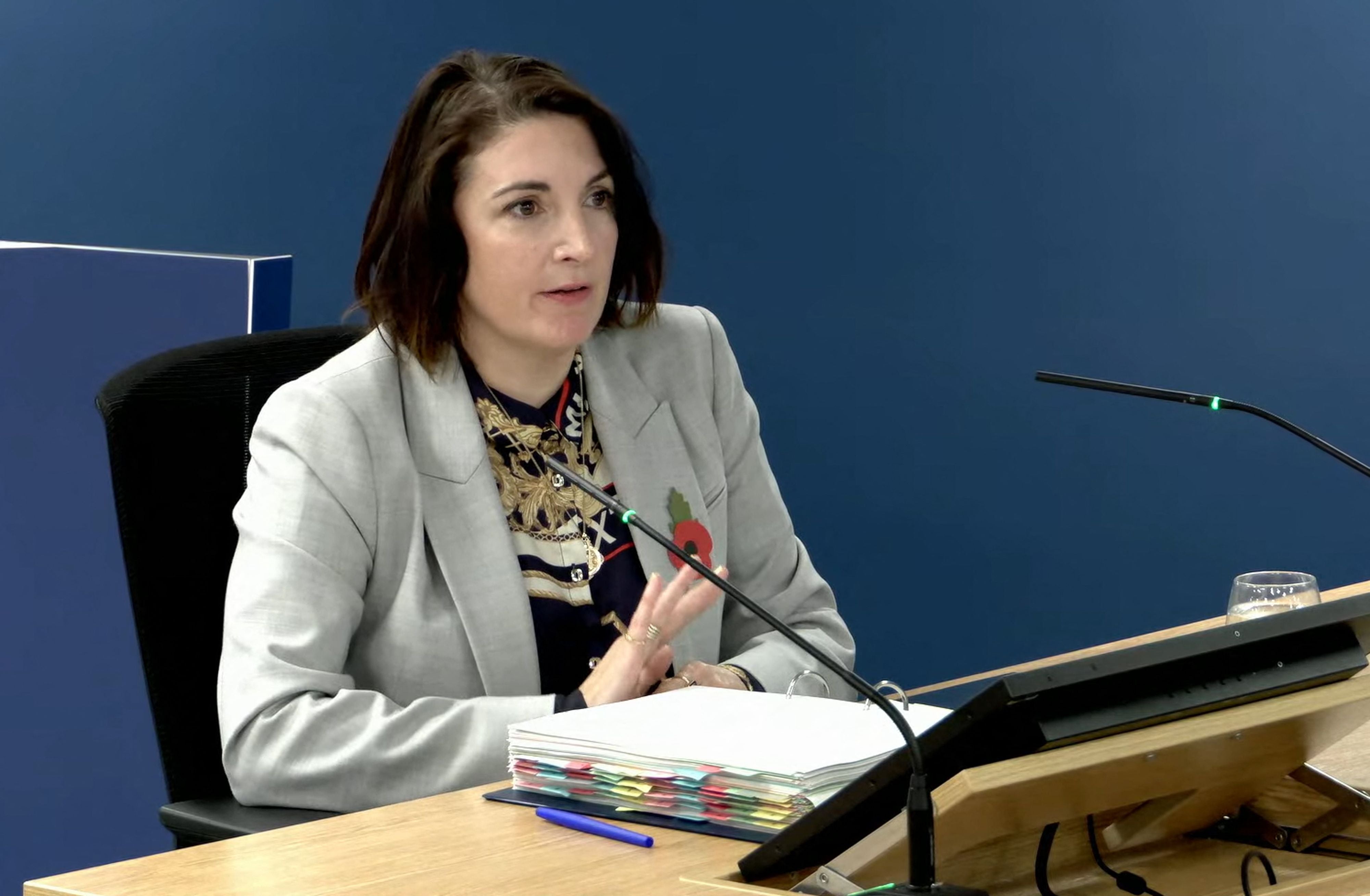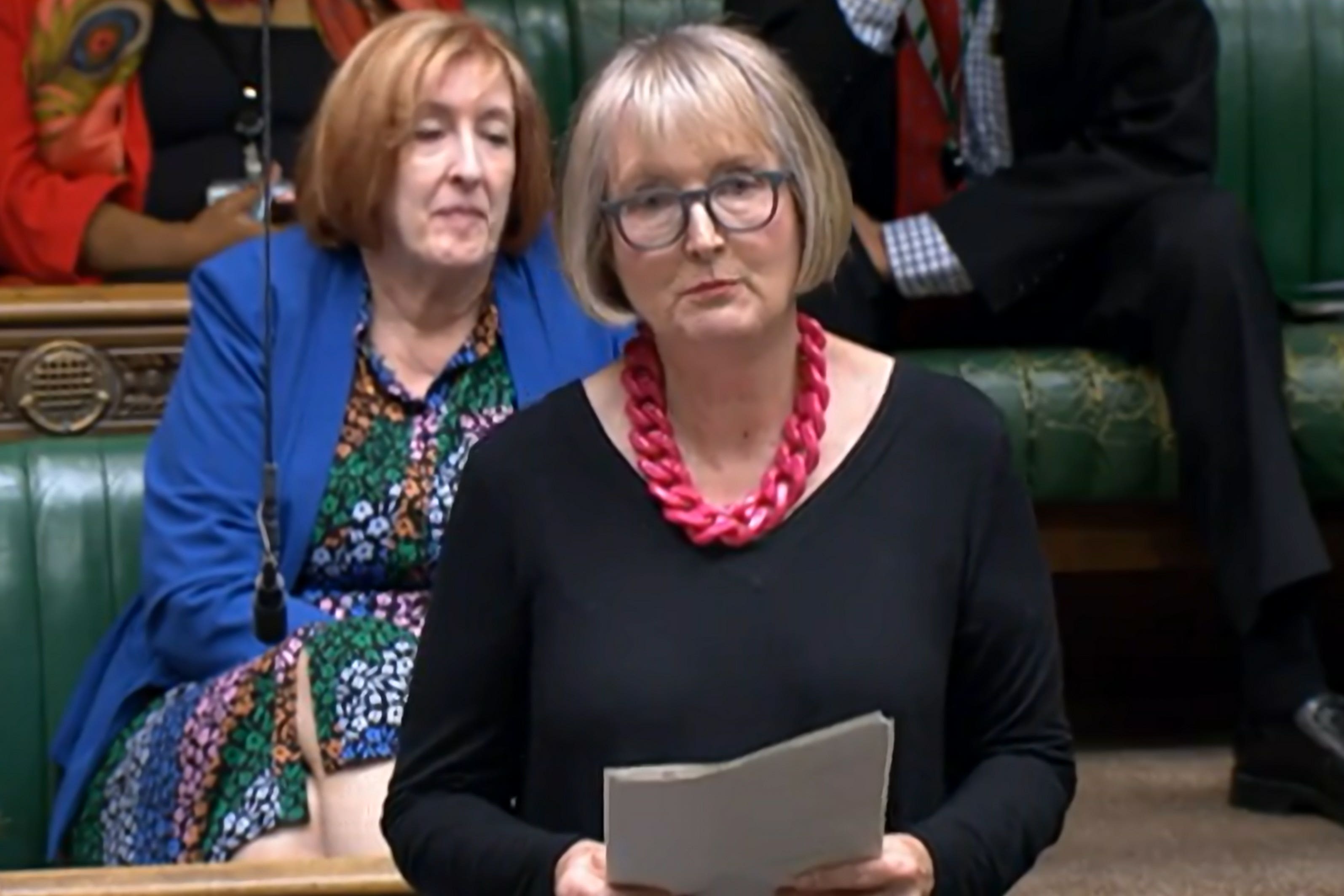Helen MacNamara was right — from the 2008 crash to Covid, it’s the male, pale and stale club that are to blame
The misogynous and macho behaviour of Boris Johnson’s inner circle, laid bare at the Covid inquiry, has echoes of the 2008 financial crisis, when rampant greed, aggression and recklessness of male bosses brought down the banks. It’s made me convinced that leadership without women just doesn’t work, writes Chris Blackhurst


Among the most striking aspects of this week’s evidence to the Covid inquiry were the use of offensive language and misogyny among the then prime minister Boris Johnson’s inner circle.
Dominic Cummings called the UK’s most senior female civil servant a c*** in a WhatsApp message sent to Johnson and Lee Cain in August 2020. He was referring to deputy cabinet secretary Helen MacNamara, who had commissioned a report into poor behaviour within the Cabinet Office.
Cummings’s message read: “If I have to come back to Helen’s bullshit with PET [propriety and ethics] designed to waste huge amounts of my time so I can’t spend it on other stuff – I will personally handcuff her and escort her from the building. I don’t care how it is done but that woman must be out of our hair – we cannot keep dealing with this horrific meltdown of the British state while dodging stilettos from that c***. [sic]”
He was asked by Hugo Keith, counsel to the inquiry, whether he treated “individuals in Downing Street with offence and misogyny”. Cummings, the former chief adviser to the prime minister, responded: “Certainly not.” Hmm.
When it was her turn to appear, MacNamara said: “Women who had worked in No 10 and the Cabinet Office reported feeling as though they became invisible overnight.” Women “had to turn their screens off” on Zoom calls and were banished to sit “in the back row” of meetings. No female voices contributed to policy discussions, and expert women were either not listened to or overlooked. Debate and discussion were limited and “everything was contaminated by ego”.

This meant that decision-makers viewed the country through a male lens that failed to take on board issues that affected women in the early weeks and months of the pandemic, including domestic abuse taking place in lockdown, the impact of school closures on childcare and the failure of PPE to fit women’s bodies.
MacNamara came across as measured and, unlike her former male colleagues, eminently sensible. She felt the government approach to regulations lacked “humanity” and it was “disappointing” that Johnson made no attempt to censure Cummings on the “violent and misogynistic language” he had used. “It’s miles away from what is right or proper or decent or what the country deserves,” she said.
Another shockingly apparent theme was the inability of the men, the boys, to get to grips with Covid. They were literally all over the place, switching tack, failing to make decisions and frequently indulging in No 10 internal politicking when lives were at stake.
Seeing it all unfold provided a reminder of a previous crisis. In 2008, banks around the world, including Lehman Brothers, went under, brought down by the rampant greed, aggression and recklessness of their (male) bosses.
In the UK, Harriet Harman, then Labour’s deputy leader and minister for women and equality, pointed to the global turmoil and said: “If it had been Lehman Sisters rather than Lehman Brothers then there may not have been as much.”
Her comments provoked ridicule in the male-dominated City and among her male colleagues, one of whom said: “Harriet has literally gone bonkers. We don’t know what she is playing at.” Former deputy prime minister, John Prescott, demanded Harman “stop complaining”. I admit that at the time, as a pale, stale male, I thought the same. I regarded Harman’s comments as a diversion, the financial meltdown had nothing to do with those in charge being men. What a ridiculous thing to say.
Then in 2012, HSBC was fined a record, $1.8bn by the US authorities for enabling the Sinaloa drugs cartel to launder their ill-gotten cash through its branch network. I’ve written a book about the scandal, called Too Big To Jail (Macmillan) and during my research realised that the bank, which was led entirely by men, took crazy, macho decisions that only served to aid the mobsters when they were looking for somewhere to wash their dirty money.

HSBC was an enormous corporation, well run, named “Bank of the Year”. But for its male, testosterone-fuelled bosses that was not enough. They decreed it should become the biggest bank in the world. That meant launching a string of acquisitions and buying banks in places where HSBC was weak, such as Mexico.
The bank they bought there, Bital, was small and poorly managed. It did not pay much attention to compliance and was based in the rural north of Mexico, in drug country. That should have been a warning enough. But the HSBC men were not bothered, assuming they knew best, that they would impose their brilliance on the bank (sound familiar after what we heard from the Covid inquiry?). The result was disaster.
Arguing for women in charge isn’t just a gimmicky woke ideal. There is actual hard evidence that having females in power leads to higher profits. In 2012, a study by Credit Suisse found that companies with at least one woman on their board significantly outperformed those with none. That finding was corroborated by a 2015 report from consultants McKinsey.
Back in 2009, Harman stuck to her guns, saying: “I do seriously think that half the financial services industry is women now. Women make up half the workforce of insurance companies and banks. Why shouldn’t they have a say on boards as well?”
She continued: “I don’t agree with all-male leadership. I think it is a thoroughly bad thing to have a men-only leadership.” Harman added: “You get better decision-making in a team if it’s a balanced team with women and men working alongside each other.”
After this week, I am firmly with Harman and MacNamara. I’ve no doubt that if MacNamara had been listened to and adhered to, our Covid response would not have been so poor. Hopefully, the inquiry chair, Baroness Hallett, a former Court of Appeal judge and the first woman to chair the Bar Council, will concur.
Join our commenting forum
Join thought-provoking conversations, follow other Independent readers and see their replies
Comments
Bookmark popover
Removed from bookmarks